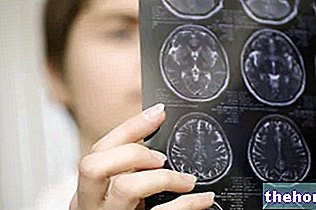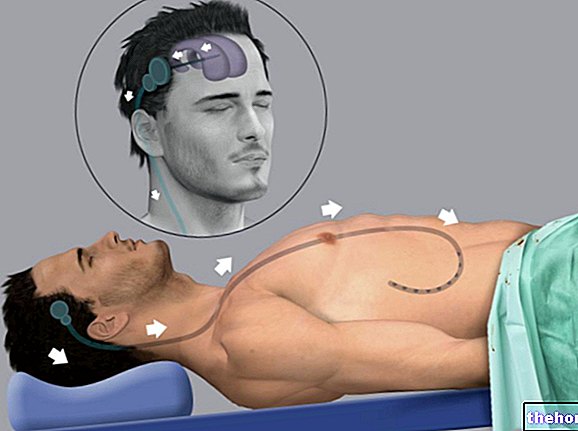Generality
Delirium, or delirium, is a serious disorder of mental abilities and thinking, which causes an acute confusional state, a reduction in awareness of the surrounding environment, abnormal behaviors and, finally, the deficit of some cognitive abilities.

Symptoms of delirium usually show up within a few hours.
For a correct diagnosis of delirium and its triggering causes, the following are essential: the physical examination, the medical history, a neurological evaluation, an evaluation of the psychic profile and a series of laboratory tests.
The treatment of delirium mainly revolves around the treatment of the triggering causes; triggering causes on which the positivity or otherwise of the prognosis also depends.
What is delirium?
Delirium is a serious disturbance of mental abilities and thinking, with a generally sudden onset, which involves, above all, a state of confusion and a reduction in awareness of the surrounding environment.
In medicine, delirium is also known as an acute confusional state or delirium.
Causes
According to reliable neurological studies, the onset of delirium depends on a malfunction of brain activity, such that the transmission mechanisms of nerve impulses entering and leaving the brain are altered.
Several factors can cause the malfunction of the brain activity that characterizes delirium, including:
- Abuse or addiction to certain drugs or alcohol;
- Some special medical conditions, such as stroke, TIA, myocardial infarction, severe brain trauma, arrhythmias, hypoglycemia or urinary retention;
- The presence of some metabolic imbalance, such as hypocalcemia or hyponatremia;
- The presence of a severe chronic disease (eg: Addison's disease) or a terminal illness (eg: malignant tumor);
- Exposure of the body to a powerful toxin;
- Malnutrition or dehydration;
- The presence of a severe urinary tract or respiratory tract infection;
- Sleep deprivation;
- Persistent constipation;
- Severe emotional distress
- The presence of very strong pain;
- The after-effects of an "anesthesia practiced on the occasion of a major surgery;
- The admission to intensive care. In these situations, doctors speak of "delirium in intensive care";
- Schizophrenia, psychosis or bipolar disorder;
- Dementias such as Alzheimer's disease or vascular dementia;
- Excessive intake of certain drugs or their inappropriate combination. Drugs that, if used incorrectly, can cause delirium include: the most powerful painkillers, sleep-promoting drugs, anxiolytics, antidepressants, antihistamines , medicines for Parkinson's disease, anticonvulsants and medicines for asthma.
RISK FACTORS
Numerous clinical studies have shown that the risk of developing a form of delirium is higher in:
- People of advanced age. Old age is perhaps the most important risk factor for delirium;
- Those who have a propensity to consume alcohol or drugs;
- Those who indiscriminately use drugs;
- People who cannot or do not want to eat adequately and according to the needs of their organism;
- Those who have a certain psychic fragility;
- Those who suffer from visual or hearing impairments;
- People with those neurological disorders that typically precede dementias (eg: mild cognitive impairment);
- Those who are forced into a long period of hospitalization, especially in intensive care;
- Persons suffering from a serious illness and, for this reason, in serious danger of life;
- Those who have been victims of violent blows to the head.
EPIDEMIOLOGY
Interesting statistical surveys have shown that delirium has the highest incidence rate among people admitted to intensive care. The numbers in this regard speak of 50-75% of patients, therefore half and even more.




























